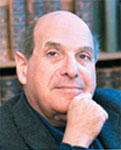
Jesus’ advice, offered as part of the Sermon on the Mount, could not be more straightforward: “Do not resist an evildoer. But if anyone strikes you on the right cheek, turn the other also” (Matthew 5:39). This admonition, which is popular in many societies, is often adhered to—but, as we observe in the worldwide press, not everywhere and not in all circumstances.
For example, nations regularly fail to follow this procedure in their diplomacy: “As a result,” declared the Mexican ambassador to the United States, “after more than a decade of dialogue in which Mexico has asked for nothing more than U.S. compliance with its NAFTA [North American Free Trade Agreement] trucking commitments, the Mexican government could not continue to turn the other cheek …” (as reported in The Washington Times). A similar phrase was also used to describe the reaction of another country to the United States: “Not one to turn the other cheek these days, China issued a report yesterday on human rights violations by the U.S. … [a] day after the State Department pointed the finger at China in its annual report on human rights abuses in 194 countries” (from The Gazette of Montreal).
Not unexpectedly, the world of sports manifests numerous instances where players (and perhaps even fans) are confronted with the eternal question: to turn or not to turn (the other cheek, that is!).
For the affirmative, we first call upon soccer star Alan Didak, who, in turning the “other cheek during heated melees,” is described as having “taken another step forward in his brilliant AFL [Australian Football League] season by keeping his cool in a running battle with Richmond’s Jake King” (the Sunday Mail of South Australia).
Elsewhere, there is Karmichael Hunt, who insists that “he will continue to turn the other cheek to the torrid backlash fired from some quarters since his stunning code defection”—from rugby to soccer. This action on Hunt’s part led the chief executive of the Australian Rugby League to brand Hunt as “a Judas” (Australia’s Courier Mail). As I see it, that’s quite a bit even in the overheated world of sports rhetoric.
Another cheek-turning athlete implicitly calls upon his faith to support his position. Racecar driver Andrew Fisher is “gearing up to deliver his sermon on the Mount [ here a reference to the site of a race]” (as reported in Australia’s Daily Telegraph): “The devout Christian and fanatical motorhead says he won’t bump other cars off the track and will turn the other cheek if someone puts him into a wall. The Jesus Racing team driver practises what he has been preaching on the Mount. Fisher’s sermon will be in a language petrol-heads who have made the pilgrimage to Bathurst can understand; it’s delivered at 250km/h with the growl of V8 and a smell of high-octane fuel.” I don’t know about you, but all of these Biblical references are getting my engines running!
Fewer, but no less colorful, are the voices of those athletes for whom cheek turning is decidedly not a guiding principle. Pride of place, as it were, in this group belongs to soccer player Arsene Wenger, who “last night claimed only Jesus Christ would have been able to turn the other cheek when Emmanuel Adebayor sparked the battle of Eastlands: ‘If somebody stamps on your head in that way you wouldn’t say, thank you very much, and turn the other cheek. Only Jesus Christ did that’ ” (The Mirror). We might point out, if only meekly, that Jesus never played soccer or rugby—nor did he drive a racecar, so far as the Biblical account is concerned.
Since I try to end columns on a positive, if not always irenic, note, I’ll close with a story from Montreal’s Gazette. With the title “New Gown Means Patients Won’t Have to Turn Other Cheek,” it describes the efforts of a company to build “the medical equivalent of a better mousetrap—a hospital gown that covers patients’ butts.” Starting out as a maker of reuseable diapers, this company designed “the new gown that now covers the same part of the anatomy” of adults. I hope no reader thinks that I’m being cheeky or tongue-in-cheek. If so, I’m ready to turn the other …

